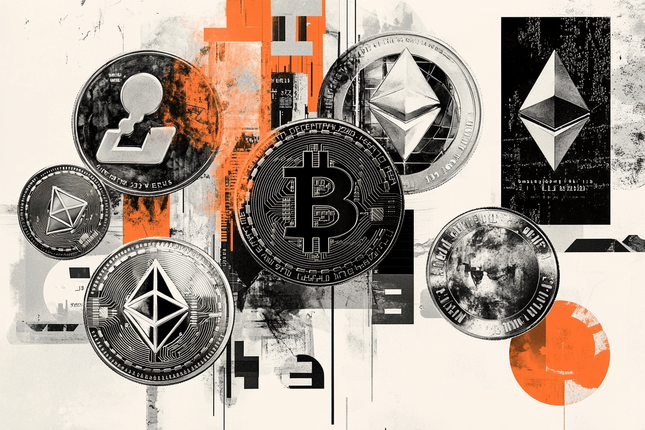Which experience has a deeper impact on your unconscious?
-
When you hear the warning "Don't touch the hot stove!"
-
Or when you actually touch it and feel the excruciating burn?
Consider this:
Once you've burned yourself on a hot stove, you become forever cautious not to repeat it.
In trading, we observe a similar phenomenon. Oh yes, a significant loss in the markets that catches you off guard can be incredibly painful. It has the potential to paralyse your future trading endeavours and bring them to a screeching halt.
Depending on its severity, such a loss can significantly affect your finances, take an immense emotional toll, and even disrupt your family.
This is precisely what happened to the elite traders interviewed in "Market Wizards." We'll delve into their stories in a moment. But first...
When you suffer a devastating loss, you might think to yourself:
-
"You need deep pockets to endure such hits" and/or.
-
"Wow! It takes real guts to withstand those blows to your account." and/or.
-
You may know some other stories too. Agree?
And so you continue to follow the markets, craving the joy of trading. However, you find yourself merely scratching around the edges - never going into the field - due to the paralysing effect of that painful experience.
But it's not about 'guts' at all, not even close
Did you know the best traders, including the absolute elite showcased in the "Market Wizard" series, are fearful?
When asked to explain how he had such a big percentage of winning trades, market wizard Mark Weinstein replied:
"Because I have a real fear of markets... which has forced me to hone my timing with great precision... I also don't lose much on my trades, because I wait for the exact moment."
You see:
It often takes experiencing traumatic loss to truly understand - at a deep unconscious level - the dangers of trading.
Before that, all you think about is how much money you can make, right?
In contrast, professional traders prioritise one thing above all else: how to avoid getting hurt.
And this isn't just about using stop-loss orders. Stop-loss orders only determine the amount you lose. They won't prevent you from experiencing repeated losses until you find yourself staring at a depleted account, accompanied by frustration and pain. Correct?
Instead, I'm referring to trading in a way that safeguards you. It requires specialised knowledge. And it also involves repetition to build trust in its reliability and efficacy. Make sense?
You regularly use a stove. It's just you don't touch the hot plate.
Similarly, when you've endured pain and trauma in trading, and you possess the right expertise and trust in that expertise, you naturally believe that sticking to what protects you is crucial because deviating from it will lead to more pain.
TL:DR
There's a way to trade that doesn't take guts or heroics. It's how the best traders operate. But the catalyst for tapping into this approach is enduring trauma and pain.
If you adopt the right approach:
Then you can trade without needing 'guts' to initiate a trade while still maintaining a genuine fear of deviating from what's safe.
Related reading:
Four-step trading framework: Improving performance by solving common trader issues
Advantages of trading over 50 – Relativistic and systematic modes [Video]
Forex and derivatives trading is a highly competitive and often extremely fast-paced environment. It only rewards individuals who attain the required level of skill and expertise to compete. Past performance is not indicative of future results. There is a substantial risk of loss to unskilled and inexperienced players. The high degree of leverage can work against you as well as for you. Before deciding to trade any such leveraged products you should carefully consider your investment objectives, level of experience, and risk appetite. The possibility exists that you could sustain a loss of some or all of your initial investment and therefore you should not invest money that you cannot afford to lose. You should be aware of all the risks associated with trading on margin, and seek advice from an independent
Editors’ Picks

EUR/USD advances above 1.1800 ahead of German inflation data
EUR/USD stretches higher above 1.1800 in the European session on Friday, helped by sustained US Dollar weakness. Attention now turns toward the release of the preliminary inflation data for February from Germany and its major states during the day.

GBP/USD struggles near 1.3500 amid UK political drama, BoE easing bias
GBP/USD struggles to build on the overnight modest bounce from the weekly low and oscillates in a narrow band near 1.3500 in European trading on Friday. The Gorton and Denton by-election, held on February 26, has become a focal point of political drama in the UK, along with the Bank of England (BoE) easing expectations, acts as a headwind for the British Pound and the GBP/USD pair.

Gold flat lines below $5,200; traders look to US PPI for fresh impetus
Gold struggles to capitalize on its modest gains registered over the past two days and trades below the $5,200 mark through the first half of the European session on Friday. Geopolitical risks remain in play amid a large US naval and air power buildup in the Middle East.

Bitcoin, Ethereum and Ripple consolidate with short-term cautious bullish bias
Bitcoin, Ethereum and Ripple are consolidating near key technical areas on Friday, showing mild signs of stabilization after recent volatility. BTC holds above $67,000 despite mild losses so far this week, while ETH hovers around $2,000 after a rejection near its upper consolidation boundary.

Changing the game: International implications of recent tariff developments
The Supreme Court ruling on International Emergency Economic Powers Act (IEEPA) tariffs provides limited relief for the rest of the world, with weighted average tariff rates modestly lower.
RECOMMENDED LESSONS
Making money in forex is easy if you know how the bankers trade!
I’m often mystified in my educational forex articles why so many traders struggle to make consistent money out of forex trading. The answer has more to do with what they don’t know than what they do know. After working in investment banks for 20 years many of which were as a Chief trader its second knowledge how to extract cash out of the market.
5 Forex News Events You Need To Know
In the fast moving world of currency markets where huge moves can seemingly come from nowhere, it is extremely important for new traders to learn about the various economic indicators and forex news events and releases that shape the markets. Indeed, quickly getting a handle on which data to look out for, what it means, and how to trade it can see new traders quickly become far more profitable and sets up the road to long term success.
Top 10 Chart Patterns Every Trader Should Know
Chart patterns are one of the most effective trading tools for a trader. They are pure price-action, and form on the basis of underlying buying and selling pressure. Chart patterns have a proven track-record, and traders use them to identify continuation or reversal signals, to open positions and identify price targets.
7 Ways to Avoid Forex Scams
The forex industry is recently seeing more and more scams. Here are 7 ways to avoid losing your money in such scams: Forex scams are becoming frequent. Michael Greenberg reports on luxurious expenses, including a submarine bought from the money taken from forex traders. Here’s another report of a forex fraud. So, how can we avoid falling in such forex scams?
What Are the 10 Fatal Mistakes Traders Make
Trading is exciting. Trading is hard. Trading is extremely hard. Some say that it takes more than 10,000 hours to master. Others believe that trading is the way to quick riches. They might be both wrong. What is important to know that no matter how experienced you are, mistakes will be part of the trading process.
The challenge: Timing the market and trader psychology
Successful trading often comes down to timing – entering and exiting trades at the right moments. Yet timing the market is notoriously difficult, largely because human psychology can derail even the best plans. Two powerful emotions in particular – fear and greed – tend to drive trading decisions off course.
